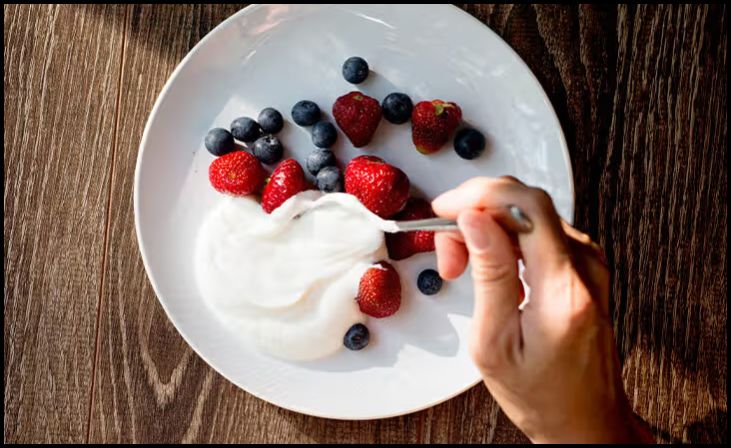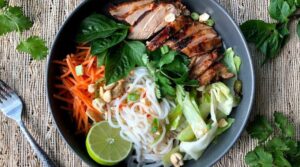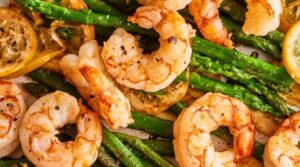The Mediterranean diet is renowned for its heart-healthy benefits, emphasis on whole foods, and delicious flavors. It incorporates a variety of nutrient-dense foods that are perfect for creating satisfying and healthy lunches. Here are nine of the best things to eat for lunch on the Mediterranean diet, each packed with benefits that can enhance your health and well-being.
Salmon

Salmon is a powerhouse when it comes to nutrition. Rich in omega-3 fatty acids and vitamin B-6, this fish is excellent for heart health and reducing inflammation. Omega-3s are known for their ability to lower insulin resistance and triglyceride levels, making salmon an ideal choice for those with diabetes or at risk of heart disease. Grill, bake, or enjoy it in a fresh salad for a tasty and nutritious lunch option.
Berries
Berries such as strawberries, blueberries, blackberries, and raspberries are small but mighty when it comes to health benefits. These fruits are packed with fiber and antioxidants, which promote gut health, prevent inflammation, and aid in smooth bowel movements. A bowl of mixed berries can be a refreshing side to your lunch or a sweet ending to your meal, providing a burst of flavor and nutrients.
Greek Yogurt

Greek yogurt is a staple in the Mediterranean diet due to its high protein content and probiotics, which support gut health. This creamy delight is also rich in essential nutrients like vitamin B-12 and calcium. It can be enjoyed on its own, mixed with fruit and nuts, or used as a base for dressings and dips, making it a versatile addition to your lunchtime menu.
Extra Virgin Olive Oil
Extra virgin olive oil is a cornerstone of Mediterranean cooking. This healthy fat is known for its protective effects against heart disease. Use it to dress salads, drizzle over roasted vegetables, or as a dip for whole-grain bread. The monounsaturated fats in olive oil help reduce bad cholesterol levels while providing a flavorful and healthful boost to your meals.
Nuts

Nuts such as almonds, walnuts, cashews, and pistachios are high in antioxidants and healthy fats. They are also a great source of protein and fiber, which can help with weight management and provide sustained energy throughout the day. Add a handful of nuts to your salads, yogurt, or enjoy them as a snack to keep your hunger at bay while reaping their nutritional benefits.
Quinoa
Quinoa is a gluten-free whole grain that is incredibly versatile and nutritious. It offers complete protein, containing all nine essential amino acids, and is high in fiber, which helps with digestion and keeps you full longer. Use quinoa as a base for salads, mix it with vegetables, or as a substitute for refined grains to enhance the nutritional value of your lunch.
Leafy Greens

Leafy greens such as spinach, kale, and arugula are nutrient powerhouses packed with vitamins K, A, and C. These greens are commonly used in Mediterranean dishes and can be the foundation of a hearty salad or blended into smoothies. Their high nutrient content supports overall health, particularly bone and eye health, making them an essential part of a balanced diet.
Eggplant
Eggplant is rich in anthocyanins, antioxidants that have anti-inflammatory properties. This versatile vegetable can be roasted, grilled, or used in a variety of Mediterranean dishes like baba ghanoush or ratatouille. Its meaty texture makes it a great plant-based option for those looking to reduce meat consumption while still enjoying a satisfying meal.
Chickpeas

Chickpeas, also known as garbanzo beans, are a fantastic source of plant-based protein and fiber. They are incredibly versatile and can be used in soups, salads, or blended into hummus. Chickpeas help keep you full and provide a steady release of energy, making them an excellent addition to your lunch. Their rich nutrient profile supports heart health and digestion.




